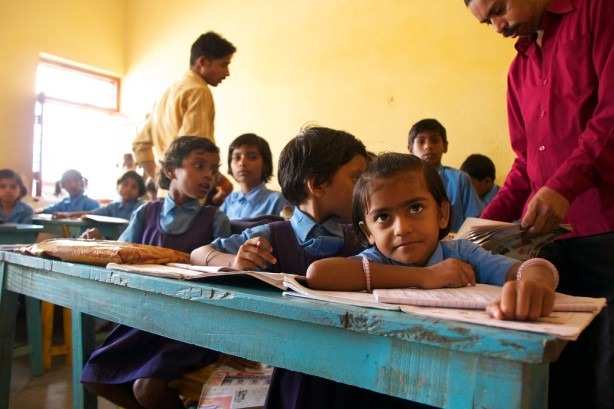Maharashtra Launches New Curriculum Framework for Foundational Stage, Focus on Mother Tongue

The state government of Maharashtra has taken a significant step in revamping its educational approach by introducing a fresh curriculum framework for the foundational stage of education. This framework, aligned with the National Education Policy (NEP) 2020, places a strong emphasis on using a child's mother tongue as the primary medium of instruction. The curriculum is designed to foster interactive activities and exploration, with a clear objective: to have students reading and writing proficiently by the end of class three.

Key Highlights of the Curriculum Framework:
-
Focus on Foundational Stage: The foundational stage of education in Maharashtra encompasses children aged 3 to 8 years, which includes three years of pre-primary education and classes 1 and 2.
-
Multilingual Concerns: While the framework advocates the use of a child's mother tongue for effective learning, concerns have arisen about the practical implementation of multiple languages and the absence of a more autonomous curriculum framework.
-
Interactive Learning: The curriculum promotes interactive learning activities and exploration, aiming to make young learners proficient in reading and writing by the end of class three.
-
Nutrition and Health: It also highlights the importance of student nutrition and health, recognizing the critical role they play in a child's educational journey.
State Curricular Framework (SCF): The State Council for Education Research and Training (SCERT) is responsible for developing the State Curricular Framework (SCF), drawing inspiration from the recommendations of the National Curriculum Framework (NCF). The draft of the proposed SCF for the foundational stage has been made public to seek feedback from stakeholders before final approval.
Mother Tongue Emphasis: The SCF underscores that learning in a child's mother tongue is more effective for understanding newer concepts at a young age. However, it acknowledges the challenge of a shortage of teachers proficient in all languages and proposes an innovative solution of "mobile teachers" equipped with knowledge of the local spoken language.
Timings and Early Childhood Care: The SCF-FS prescribes that the pre-primary section should not exceed 3 hours and 10 minutes a day, and classes 1 and 2 should be limited to no more than five hours per day. Additionally, the framework incorporates Early Childhood Care and Education (ECCE), which encompasses anganwadis active in the state.
Child Safety: The curriculum framework for the foundational stage also incorporates child safety as a critical component. It encourages teachers to be well-informed about legislation such as the Protection of Children from Sexual Offences (POCSO) Act and its significance. Furthermore, it suggests measures to ensure the physical and emotional safety of children and provides training on distinguishing between good-touch and bad-touch at the foundational stage.
